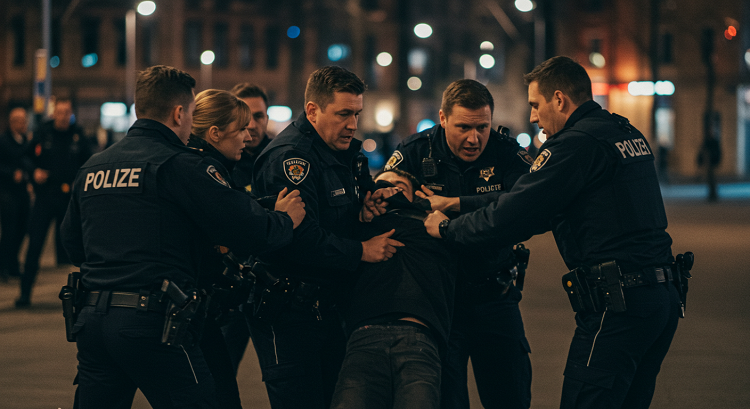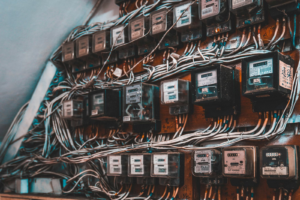How Legal Systems Handle High-Profile Arrests

When celebrities, politicians, or other public figures are arrested, it grabs headlines across the world. These high-profile arrests aren’t just criminal matters—they become major public spectacles. But behind the cameras and online debates, the legal systems in different countries continue to operate based on their own procedures, laws, and principles. Whether it’s a famous actor, a music artist, a sports figure, or a corporate executive, the path they follow through the justice system isn’t always straightforward.
This article explores how legal systems manage high-profile arrests, what makes them unique, and why they often receive more attention than similar cases involving everyday people.
Public Scrutiny Begins the Moment of Arrest
When a public figure is arrested, the news spreads instantly. Unlike private citizens, their personal and professional lives are widely known, which makes their legal issues immediately visible. The moment their name is tied to a crime, the legal process starts in parallel with the court of public opinion.
In some cases, arresting a well-known individual involves extra care by law enforcement. They may coordinate with legal teams, avoid overly aggressive tactics, and make sure the arrest is carried out without chaos. Authorities often issue statements quickly to confirm facts and avoid speculation.
The pressure on police and prosecutors is heightened in these scenarios. Every step, from booking to bail hearings, is watched closely by both fans and critics.
Legal Procedures Still Apply—With Some Adjustments
Although celebrities and public figures go through the same basic legal procedures as anyone else, high-profile cases often come with certain adjustments. These can include:
- Extra security during court appearances
- Private entrances to avoid media swarms
- Protective custody if jailed, to separate them from the general prison population
- Faster bail hearings due to media attention
Still, they must appear before a judge, face charges, and go through trials if needed. Courts typically attempt to treat these individuals like any other defendant, but balancing fairness with public pressure can be challenging.
Sometimes, special judges are assigned, or cases are moved to different jurisdictions to ensure a fair trial.
Defense Strategies Are Often More Aggressive
With more resources at their disposal, public figures often hire elite legal teams to represent them. These attorneys know how to handle both courtroom procedures and the media storm that surrounds their clients. The defense may include PR consultants, private investigators, and expert witnesses—all working to build a case while shaping public perception.
The legal strategies used in high-profile cases are typically more calculated, with great attention to public statements, courtroom appearances, and behind-the-scenes negotiations. Whether the charge is related to assault, tax evasion, copyright violation, or financial fraud, these lawyers know that public opinion can influence legal decisions like sentencing or jury behavior.
For a deeper look into why people from different walks of life—including musicians, entrepreneurs, actors, and others—end up facing jail time, you can explore real-life scenarios and case details at WhyGoToJail, which offers insights into the range of circumstances that lead to incarceration.
Media Coverage Can Influence Legal Outcomes
One major complication in high-profile arrests is the role of the media. The constant flow of news reports, social media reactions, and opinion pieces can create challenges for everyone involved in the legal process.
Jurors may be exposed to biased information before the trial even begins. Judges sometimes issue gag orders to restrict what attorneys and defendants can say publicly. In extreme cases, jury members are sequestered, meaning they’re isolated from outside media during the trial.
While media attention can help bring justice in some cases by raising awareness, it can also hinder fair proceedings by swaying opinions and encouraging premature judgment.
Bail and Pretrial Release: Public Figures Often Walk Free Quickly
After arrest, one of the first legal steps is determining bail. For celebrities and public figures, judges may set a high amount, not because they are seen as dangerous, but due to their financial capacity and flight risk potential.
However, because these individuals usually have access to funds and legal representation, they are released quickly. This often leads to criticism from the public, who feel that fame or wealth gives certain people a smoother legal path.
Despite these perceptions, legal systems usually follow established rules when setting bail, considering the crime’s severity, the accused’s history, and their risk of fleeing.
Trials Become Public Spectacles
Once a high-profile case goes to trial, it can turn into a full media event. News outlets cover every hearing, social media platforms debate every testimony, and photos from the courtroom make global headlines.
Famous trials involving artists, actors, or sports stars often lead to increased interest in legal education. People become curious about the justice system and start questioning how it functions.
While this public interest can be valuable, it can also create distractions, delays, or security concerns. Courtrooms need to manage crowds, handle misinformation, and maintain the focus on justice—not drama.
Verdicts and Sentencing: When the Law Sends a Message
When high-profile individuals are convicted, courts sometimes impose stricter sentences to send a public message that fame doesn’t excuse illegal behavior. In other cases, the opposite may occur—lighter sentences are given, which can spark public outrage.
Judges often stress that decisions are based solely on facts and laws. However, public pressure, media narratives, and social climate can subtly affect legal outcomes.
For instance, a public figure convicted of financial misconduct may receive a strong sentence if the case gained major attention during a time of economic hardship. The justice system tries to remain neutral, but real-world context does have an influence.
Life After Conviction: The Return Isn’t Always Easy
Once a famous person is convicted, their reputation and career are often damaged—sometimes permanently. Even after serving time or paying fines, they face challenges in returning to the spotlight.
Some manage to rebuild their image through public apologies, charity work, or quiet reappearances in their field. Others retreat from public life, unable to overcome the backlash.
In certain cases, legal records stay public, making it harder for them to get endorsements, media work, or roles in entertainment. The justice system may close a case, but public judgment can continue indefinitely.
Closing Thoughts
Handling high-profile arrests is one of the greatest challenges for any legal system. The goal remains the same—to apply the law equally and fairly. But when the spotlight is on, the smallest decisions become amplified, and every step is scrutinized.
Lawyers, judges, and police must walk a fine line between protecting legal rights and responding to public expectations. Meanwhile, those facing charges must defend themselves not just in court, but also in the minds of millions watching.
Understanding how the system treats these unique cases helps us see the broader balance between fame, responsibility, and justice. In the end, the law may be blind—but the public certainly isn’t.







